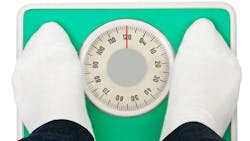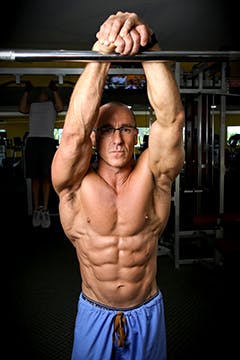Okay, we’re safely past swimsuit weather in most parts of the country (think Buffalo).
But it won’t be long before many of us are engaged in the national pastime of setting New Year’s resolutions for 2015, and losing weight is a perennial top resolution. I know, I list it almost every year.
If you want to get a head start on shedding a few pounds, Dr. Brett Osborn has some tips for you.
“You’re much more apt to be successful, and keep the weight off, if you don’t focus on simply shedding pounds by reducing your caloric intake,” says Osborn, author of Get Serious, A Neurosurgeon’s Guide to Optimal Health and Fitness, www.drbrettosborn.com.
“As a general rule, the best thing you can do for yourself is start doing weight training and keep it simple,” Osborn says. Why take his advice? He is a New York University-trained, board-certified neurological surgeon with a secondary certification in anti-aging and regenerative medicine. He is also built like a rock.
He shares seven tips for burning up the fat and building muscle through weight training:
• Make workouts intense. Any exercise or group of exercises must provide sufficient stimulus to trigger the body’s adaptive response. A requisite of this is intensity. We are reactive organisms at a base level. Resistance training of sufficient intensity stimulates an increase in testosterone production, and the anabolic, muscle-building process ensues.
• Always err on the side of training less. So, how do you know just how much is enough? Are you training too often or just the opposite? In both cases, there will be failed gains. That’s right – overtraining can stall progress! The answer? Pay meticulous attention to your progress, or lack thereof.
• Chart your progress. Set training goals, both short-term and long-term, and accomplish them. Buy a log book or download an app (there are many available for free) and make a habit of recording every workout. You don’t know where you’re going unless you know where you’ve been.
• Nutrition is as important as training. You must provide your body with adequate nutrition to rebuild itself. If your fitness goal is muscular hypertrophy and strength, you’ll make few if any gains in the context of poor nutrition.
• You must get adequate sleep. “I have a hard time with this one because of my occupation, so I make it a priority as much as possible,” Dr. Osborn says. Without adequate rest, your body won’t recover from training. Remember, your muscles are growing while you sleep, provided there is adequate stimulus for growth and sound nutrition.
• Educate yourself. Learn as much as possible about training and, more specifically, how your body responds to various training modalities. Forget about fitness or fashion magazines – the endorsed regimens there bear little resemblance to those actually utilized by bodybuilders. Don’t lose weight for its own sake. Building muscle is the best way to burn fat, so don’t pay attention to gimmicky and faddish celebrity fitness articles.
• Never quit! A well-timed hiatus from training is very different than quitting. In fact, we need intermittent breaks as the majority of us are actually overtraining. Terminating all exercise is akin to quitting health. Push yourself through periods of stalled progress. Don’t expect to look like a professional bodybuilder after six to 12 months of training. Unless you’re using anabolic agents, you won’t look like that. But that’s okay! The point is slow and steady progress, which inevitably yields a more muscular physique and, ultimately, better health.
About the Author
IW Staff
Find contact information for the IndustryWeek staff: Contact IndustryWeek

